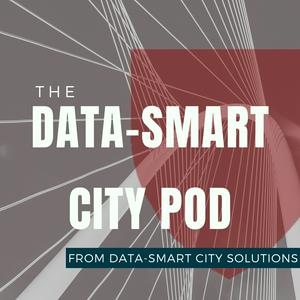Listen to host Stephen Goldsmith speak with two leading voices at the intersection of local government, data, and AI: Rochelle Haynes, Managing Director of What Works Cities and Carrie Bishop, who leads data and AI initiatives for the Government Innovation program at Bloomberg Philanthropies. Haynes and Bishop share advice for mayors on leading AI‑driven culture change, choosing meaningful use cases, and making data central to how modern cities solve problems. They explore how cities can use data and generative AI to move beyond traditional public meetings toward intentional, co‑created community solutions, featuring real examples and leadership advice.
Music credit: Summer-Man by Ketsa
About Data-Smart City Solutions
Data-Smart City Solutions, housed at the Bloomberg Center for Cities at Harvard University, is working to catalyze the adoption of data projects on the local government level by serving as a central resource for cities interested in this emerging field. We highlight best practices, top innovators, and promising case studies while also connecting leading industry, academic, and government officials. Our research focus is the intersection of government and data, ranging from open data and predictive analytics to civic engagement technology. We seek to promote the combination of integrated, cross-agency data with community data to better discover and preemptively address civic problems. To learn more visit us online and follow us on Twitter.


